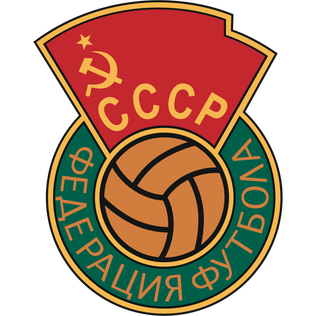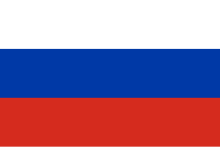
Bandy is a winter sport and ball sport played by two teams wearing ice skates on a large ice surface while using sticks to direct a ball into the opposing team's goal.

The Summer Olympic Games, also known as the Games of the Olympiad, and often referred to as the Summer Olympics, is a major international multi-sport event normally held once every four years. The inaugural Games took place in 1896 in Athens, Greece, and the most recent Games were held in 2021 in Tokyo, Japan. The International Olympic Committee (IOC) is responsible for organising the Games and for overseeing the host city's preparations. The tradition of awarding medals began in 1904; in each Olympic event, gold medals are awarded for first place, silver medals for second place, and bronze medals for third place. The Winter Olympic Games were created out of the success of the Summer Olympic Games, which are regarded as the largest and most prestigious multi-sport international event in the world.

The Winter Olympic Games is a major international multi-sport event held once every four years for sports practiced on snow and ice. The first Winter Olympic Games, the 1924 Winter Olympics, were held in Chamonix, France. The modern Olympic Games were inspired by the ancient Olympic Games, which were held in Olympia, Greece, from the 8th century BC to the 4th century AD. Baron Pierre de Coubertin founded the International Olympic Committee (IOC) in 1894, leading to the first modern Summer Olympic Games in Athens, Greece in 1896. The IOC is the governing body of the Olympic Movement, with the Olympic Charter defining its structure and authority.

The 1920 Summer Olympics, officially known as the Games of the VII Olympiad and commonly known as Antwerp 1920, were an international multi-sport event held in 1920 in Antwerp, Belgium.

The 1908 Summer Olympics were an international multi-sport event held in London, England, United Kingdom, from 27 April to 31 October 1908. The 1908 Games were originally scheduled to be held in Rome, but were relocated on financial grounds following the violent eruption of Mount Vesuvius in 1906, which claimed over 100 lives; Rome eventually hosted the Games in 1960.

The Ice Hockey World Championships are an annual international men's ice hockey tournament organized by the International Ice Hockey Federation (IIHF). First officially held at the 1920 Summer Olympics, it is the sport's highest profile annual international tournament. The IIHF was created in 1908 while the European Championships, the precursor to the World Championships, were first held in 1910. The tournament held at the 1920 Summer Olympics is recognized as the first Ice Hockey World Championship. From 1920 to 1968, the Olympic hockey tournament was also considered the World Championship for that year.

Football at the 1912 Summer Olympics was one of the 102 events at the 1912 Summer Olympics in Stockholm, Sweden. It was the fourth time that football was on the Olympic schedule and the tournament was entered by 13 nations, all from Europe: Belgium withdrew two weeks before the draw, while France withdrew a few days after the draw; their opponents, Norway, were awarded a 2–0 victory.

The Russian men's national ice hockey team is the national men's ice hockey team of Russia, overseen by the Ice Hockey Federation of Russia. As of 2021, they were rated third in the IIHF World Ranking. The team has competed internationally from 1992 until a 2022 ban, and is recognized by the IIHF as the successor to the Soviet Union team and CIS team. Russia has been one of the most successful national ice hockey teams in the world and a member of the so-called "Big Six," the unofficial group of the six strongest men's ice hockey nations, along with Canada, the Czech Republic, Finland, Sweden, and the United States. The European nations of the Big Six participate in the Euro Hockey Tour, which Russia won nine times since 2005. Since September 2021, the head coach is Alexei Zhamnov, who took over from Valeri Bragin.

The Soviet Union national football team was the national football team of the former Soviet Union.

The all-time medal table for all Olympic Games from 1896 to 2022, including Summer Olympic Games, Winter Olympic Games, and a combined total of both, is tabulated below. These Olympic medal counts do not include the 1906 Intercalated Games which are no longer recognized by the International Olympic Committee (IOC) as official Games. The IOC itself does not publish all-time tables, and publishes unofficial tables only per single Games. This table was thus compiled by adding up single entries from the IOC database.

Russia, officially known as the Russian Federation, has competed at the modern Olympic Games on many occasions, but as different nations in its history. As the Russian Empire, the nation first competed at the 1900 Games, and returned again in 1908 and 1912. After the Russian revolution in 1917, and the subsequent establishment of the Soviet Union in 1922, it would be thirty years until Russian athletes once again competed at the Olympics, as the Soviet Union at the 1952 Summer Olympics. After the dissolution of the Soviet Union in 1991, Russia competed as part of the Unified Team in 1992, and finally returned once again as Russia at the 1994 Winter Olympics.

Finland competed at the 1912 Summer Olympics in Stockholm, Sweden. The Grand Duchy of Finland was part of the Russian Empire at the time, but Finland's results are kept separate from those of Russia. In the Opening Ceremony Finland's team paraded under the national insignia flag of a Swedish-speaking female gymnastics club in Helsinki. 164 competitors, 162 men and 2 women, took part in 49 events in 10 sports.

Ukraine first participated at the Olympic Games as an independent nation in 1994, and has sent athletes to compete in every Summer Olympic Games and Winter Olympic Games since then. The first athlete who won the gold medal for the yellow-blues was Oksana Baiul.

The men's pommel horse competition was one of eight events for male competitors in artistic gymnastics at the 1996 Summer Olympics in Atlanta. The qualification and final rounds took place on July 20, 22 and 28th at the Georgia Dome. There were 102 competitors from 31 nations, with nations in the team event having up to 7 gymnasts and other nations having up to 3 gymnasts. The event was won by Li Donghua of Switzerland, the nation's first victory in the men's pommel horse since 1928. It was the first time since 1980 that the pommel horse did not have a tie for first place. Marius Urzică earned Romania's first pommel horse medal with his silver, while Alexei Nemov earned Russia's first as a nation separate from the Soviet Union with his bronze.

The men's horizontal bar competition was one of eight events for male competitors in artistic gymnastics at the 1956 Summer Olympics in Melbourne. There were 63 competitors from 18 nations, with nations in the team competition having up to 6 gymnasts and other nations entering up to 3 gymnasts. The event was won by Takashi Ono of Japan, with his countryman Masao Takemoto taking bronze. Silver went to Yuri Titov of the Soviet Union. Japan and the Soviet Union each earned their first horizontal bar medals.

The Russian Empire national football team was the association football team representing the Russian Empire from 1910 to 1914.
Athletics is a sport in Russia. Russian athletes competed in international athletics competitions such as Olympic Games or World athletics championships. Athletics was governed in Russia by the All-Russia Athletic Federation. The World Anti-Doping Agency (WADA) found widespread doping and large-scale cover ups by the Russian authorities, the All-Russia Athletic Federation (ARAF) was declared non-compliant with respect to the World Anti-Doping Code, and in 2015 the IAAF council overwhelmingly voted in favour of prohibiting Russia from world sports events with immediate effect. ARAF accepted the indefinite IAAF suspension. As of 2022, due to the 2022 Russian invasion of Ukraine, World Athletics has banned all Russian athletes, support personnel, and officials from all World Athletics Series events for the foreseeable future, including those with ANA status. Beginning in March 2022, after the 2022 Russian invasion of Ukraine, the Diamond League excluded Russian and Belarusian athletes from all of its track and field meetings.

The men's eight competition at the 1952 Summer Olympics took place at Meilahti, Finland. It was held from 20 to 23 July. There were 14 boats from 14 nations, with each nation limited to a single boat in the event. The event was won by the United States, the nation's seventh consecutive and ninth overall gold medal in the men's eight; the Americans had won every time they competed. The Soviet Union took silver in its Olympics debut; Australia's bronze was its first medal in the men's eight.














